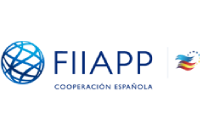Pascal
About Pascal
What is PASCAL?
The project Support to Civil Society in Local Governance (PASCAL) aims to contribute towards a more inclusive society in terms of participatory governance, and focuses on under-represented sections of society, such as women, young people, and people with functional diversity.
The action is perfectly aligned with the Government of Angola and the European Union policies on strengthening civil society and on processes of decentralisation and local development, and it complements other EU-funded initiatives aimed at increasing the participation of Angolan citizens.
This project is fully funded by the European Union (EU), with an allocated budget of EUR 5.8 M for the entire 48-month implementation period, from June 2021 to May 2025.
PASCAL implements a series of actions to achieve its objectives of consolidating civil society and the processes of decentralisation and local development. These actions including the following:
- Technical assistance based on the interests of Angolan institutions and civil society;
- Training: workshops at national, regional and municipal levels;
- Exchange programmes for national and international experts;
- Studies and research;
- Grants for Angolan civil society organisations;
- Communication activities (information and awareness campaigns);
- Study visits.
These actions aim to provide a stimulus to innovative interventions adapted to Angola’s context and needs in terms of participatory and open local governance, mobilising European, African and Latin American public expertise.
Objectives
The overall objective of the PASCAL Project is to contribute towards economic growth and social development through an inclusive, heterogeneous and effective participation of civil society in the governance process.
The PASCAL Project has the following specific objectives:
To improve the legislative, regulatory and institutional framework for participatory governance.
To enhance and make more effective the participation of civil society, particularly for groups that are underrepresented in decision making such as women and youth, in participatory governance platforms at national level and in 25 municipalities.
To increase the level of information and awareness of citizens, especially women and young people, about their rights, the work of public institutions, decentralisation and participatory governance.
Implementing Agencies
The Action is implemented by FIIAPP (International and Ibero-American Foundation for Administration and Public Policies), a public foundation of the Spanish Cooperation agency focused on mobilising public expertise, which leads the consortium, and Lithuania’s CPMA (Central Project Management Agency), a public institution aimed at working in cooperation with the public sectors of several countries.
PASCAL Team
The project’s main office is based in Luanda, Angola. It consists of the Project Director, three local key experts who specialise in 1) Governance and Territorial Innovation, 2) Support for Effective Civil Society and 3) Communication, Visibility and Advocacy; and a local administrative support officer.
This structure is supported by the project teams at the FIIAPP and CPMA headquarters, in Madrid and Vilnius, respectively, who are responsible for coordinating activities and mobilising European public expertise, and for coordinating between the project partners.
Partners
PASCAL aims to promote the exchange of knowledge, skills and best practices between the European Union, Angola and other African and Latin American countries to support the strengthening of the country’s institutions and to create mechanisms for inclusive and effective citizenship participation.
The Angolan counterparties are:
- Ministry of Territorial Administration (MAT), in particular the National Directorate for Local Administration (DNAL);
- National Authorising Officer, the Ministry of Economy and Planning (MEP);
- Ministry of Social Action, Family and Promotion of Women (MASFAMU);
- Other ministries;
- National School of Administration and Public Policies (ENAPP);
- Local authorities (Regions and Municipalities);
- Residents’ Committees;
- Civil Society Organisations.
The Project’s European partnerships are:
- Spanish Federation of Municipalities and Provinces (FEMP);
- Ministry of Territorial Policy and Public Service of Spain;
- National Institute of Public Administration of Spain (INAP);
- The United Cities and Local Governments (UCLG) Community of Practice on Transparency and Open Government;
- Platform of National Non-Governmental Development Cooperation Organisations of Lithuania.




